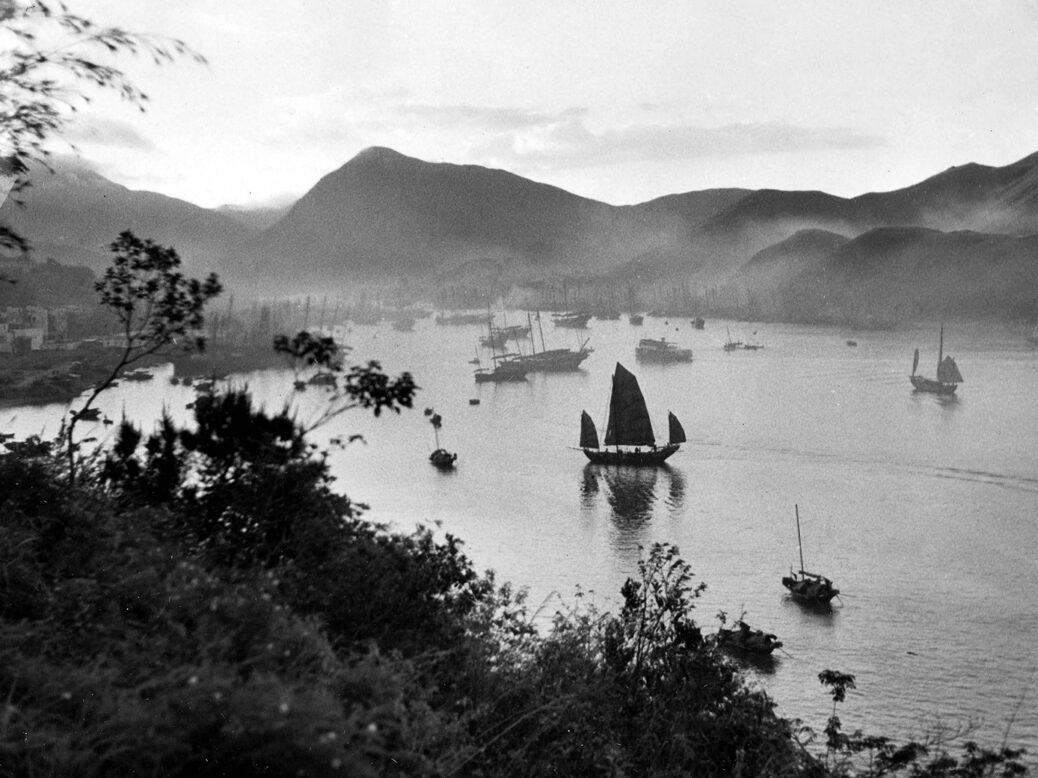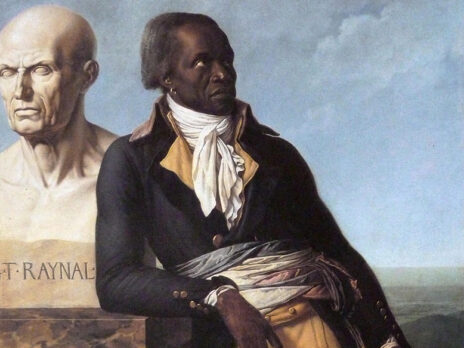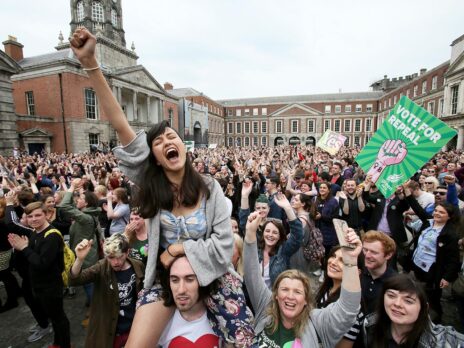
There is more than one Hong Kong. Anyone who has encountered the city establishes their version of the place. My first connection to the territory was through a watch. It was 1997. I was seven years old. The watch was a gift from a family friend and was purchased in Hong Kong. My grandmother handed it to me. Sized for a child, it had white leather straps and a narrow, rectangular face. Wrapped in a clear sheet of plastic, the present was sealed with a glossy Minnie Mouse sticker.
The watch, in its delicate, immaculate appearance, evoked a lifestyle that was tangible yet out of reach. My grandmother shared my reluctance to tear off the plastic wrapping. She pressed a three-syllable phrase into my tentative delight: “jin-kou-de!”
Imported.
From Hefei, my hometown on the Chinese mainland, Hong Kong as a special administrative region was still a foreign country. That July, I watched the handover ceremony on state television with my family and wrote about it for my homework. I stitched together sentences using words I had heard on TV: British imperialists lowered their arrogant heads. A century of national humiliation was washed away. The lost child reunited with the motherland.
That year, Louisa Lim was a young reporter at a local TV station in Hong Kong. Born in England to a Singaporean-Chinese father and a white British mother, Lim moved to the territory aged five and grew up there. She studied and worked in Beijing in the early 1990s, before returning to the city she called home to pursue journalism. The morning after the handover, she found her newsroom practically deserted. No one seemed to know what stories to cover next.
For four-year-old Karen Cheung, life in Hong Kong under Chinese rule was exactly as before. Her father’s family had emigrated from China in the 1950s. Her mother is from the mainland.
In the years that followed, Lim worked as a China correspondent for American and British outlets, taught journalism in Australia, and published an acclaimed book on the forced forgetting of the Tiananmen crackdown, The People’s Republic of Amnesia (2014). Cheung studied law before she too became a journalist in her home city.
In my early adolescence, I briefly aspired to a career in law or letters, before realising that neither profession held much prospect in a society without the rule of law or freedom of expression. Science was one of the few disciplines I could pursue without compromise. It also offered one of the surest paths out of the constraints of my upbringing. I stayed in my hometown for university and came to the US for my PhD in physics in 2009. Among my undergraduate class, there was an unspoken hierarchy: the best would go to the US, followed by Canada, Britain and continental Europe. One looked for a way to Singapore or Hong Kong if the other options failed. Personal success was measured by the distance from home and proximity to the West.
Since I moved to the US, voices from Hong Kong have been an essential part of my political education. They exposed my ignorance as a Chinese mainlander and member of the Han ethnic majority, defied state-centric narratives of sovereignty and national unity, and affirm the values of collective action that perseveres beyond immediate, individual gain. Among the many chroniclers of Hong Kong in recent years, Lim and Cheung have been two of the most consistently eloquent and insightful. That both have published a new book on the city is an occasion in itself.
Cheung’s The Impossible City: A Hong Kong Memoir weaves together first-person narrative, reportage, and social commentary. It is a coming-of-age story and a love letter to home that is at turns achingly tender and unsparingly critical of the city’s systemic flaws. Lim’s Indelible City: Dispossession and Defiance in Hong Kong is more ambitious. Based on interviews and archival research, threaded by elements from Lim’s life – her ethnic Chinese father was a civil servant in the British-Hong Kong government, her English mother a cultural historian of the city – it constructs a long history of Hong Kong from the Neolithic Age to the present.
Distinct in their approaches, the two books nonetheless conclude with the 2019 pro-democracy protests and their aftermath – Beijing’s imposition of the 2020 National Security Law. As the draconian legislation leads to a succession of arrests and prohibitions, many in the West have declared that “Hong Kong is dead” and has become “just another Chinese city”. It’s interesting to read both claims as someone from the mainland. I wonder if these pundits consider the people of my hometown to be full human beings, or perhaps we only appear as automatons living under an authoritarian regime.
[see also: Hong Kong’s authoritarian future is already here]
The same reductive gaze has tokenised Hong Kong as China’s “rebel city”, its quixotic battle a proxy for the “New Cold War” between China and the West. As Cheung puts it, international outlets “continue to act like the only times Hong Kongers deserve their own stories is when it’s a narrative about our death”. By charting Hong Kong’s long evolution, by illustrating the quotidian struggles of its people outside the headlines, Lim and Cheung have given a dynamic, layered portrait of their home city beyond its postcard skyline and the spectacles of uprising and crackdown. The questions probed in both books, on what it means to be of a nation and what it means to be free, are as urgent as they are timeless.
“A barren rock with nary a house upon it” was how Britain’s foreign secretary, Lord Palmerston, described Hong Kong Island in 1841. His government, victorious in the First Opium War against the Qing empire, had just made the initial acquisition of Qing’s southern territory. In this version of events, which Lim learned at school in colonial Hong Kong, the arrival of the British marked the beginning. They brought trade, infrastructure and governance to this stony corner, attracting migrants who built “Asia’s world city”.
In elementary school on the mainland, I recited another official narrative, where Hong Kong has been “part of China” since time immemorial, its forced seizure by British invaders a crime vindicated upon the territory’s return in 1997.
Neither narrative represents the real Hong Kong. As Lim recounts, the land British colonisers considered “barren” has evidence of habitation since the late Stone Age. Beneath a sandy beach, shards of clay pots and pebble tools date back 6,000 years. Along a hillside of former vegetable fields, quartz jewellery from the Bronze Age lay next to the remains of their owners. Nestled in a public housing complex, a two-millennia-old tomb contained artefacts resembling those from neighbouring Guangdong, then part of the Han empire. By Beijing’s account, the tomb is proof of Hong Kong’s “Chinese-ness” since ancient times, but one cannot contend with the geographical reach of a cultural identity without confronting the brute force of empire.
Scholars suggest that the tomb belonged to an official overseeing salt production in the area. Successive Chinese empires continued their monopoly over this valuable resource. Yet for Hong Kong’s people – on the periphery, subject to economic exploitation and cultural assimilation from the imperial centre – the relationship with empire did not exist in simple binaries. Eighty years after the salt farmers’ revolt of 1197, when Hong Kong villagers fought imperial troops and battled their way into Guangdong, the Song empire fell to the Mongol conquest. Its last two emperors – aged eight and six respectively when they took power – fled to Hong Kong. Villagers packed their best food inside humble utensils to offer to the royal exiles. This act of generosity and allegiance is remembered in punchoi or “basin food”, a staple festival dish.
“Every serving recalls Hong Kong’s past as a sanctuary for rebels and fugitives from central power,” Lim writes. There in the late 19th century, a young Sun Yat-sen met kindred spirits and plotted an alternative vision for China. The British colony and burgeoning port city helped foment a revolution that in 1911 would overthrow the last Chinese empire. Also living in Hong Kong during this time was José Rizal, the national hero of the Philippines who was later executed by the Spanish colonial government for his seditious writings. Wars and uprisings redefined the meaning of patriotism. A new national consciousness emerged from the margins of empire, which are also the front line of violent encounters.
In the decade from the late 1930s, when the Chinese Communist Party was the rebel force against the ruling Nationalist government, the party operated underground cells in Hong Kong and established front companies to raise money and funnel supplies to its base in the north. Capitalism in Hong Kong helped fund the communist revolution on the mainland. The porous border between Hong Kong and Guangdong continued as a crucial channel for commerce and for people during the Mao years. Then in the 1980s, Guangdong was one of the first testing grounds for Beijing’s economic reforms under Deng Xiaoping. As Cheung notes, factories in Hong Kong began relocating to the mainland for the lower labour cost and other attractive policies, “leaving behind vacant buildings, now relics of the city’s industrial past”.
Hong Kong, a manufacturing hub during its post-Second World War boom, soon became a major financial centre, an interface between East and West, between established economies and emerging markets. Chinese leaders pledged that the city would keep its governing system intact and its way of life unchanged for 50 years after the handover. But the 1984 agreement, negotiated between London and Beijing with little input from the Hong Kong people, was never about what was best for Hong Kong but how the colony could best serve the interests of its new suzerain, as China moved away from a planned economy to embrace the capitalist market.
Capitalism, like empire, has its core and peripheries, metropole and colonies. It thrives on inequality and strives to maintain an uneven structure. In a hilly city like Hong Kong, as Cheung points out, the class hierarchy can be literal: “the higher the altitude, the more expensive the apartments”. Both Lim and Cheung struggled with finding affordable housing in the city. The real issue is not how much land there is in Hong Kong but who owns it: the city’s real estate, as well as key sectors such as transportation and telecommunications, are controlled by a handful of family-owned conglomerates. The oligarchical system originated under British rule. Now Beijing relies on the tycoons to advance its agendas, and in turn provides policy conditions favourable to their businesses. As Hong Kong has transitioned from being a manufacturing-based economy, its government revenue has come to depend on selling and leasing land. The property market has become “too big to fail”.
Beijing claims that the reason for the recent mass demonstrations in Hong Kong, beyond “sedition” or “separatism”, is simply economic anxiety, while many in the West have idealised the protesters as crusaders for liberty. Neither perspective captures the complexity of grievances in the territory. At the height of the pro-democracy protests in 2019, a video went viral on social media. In it, an office worker is accosted by a crowd in the street. They are chanting in Cantonese. The worker continues towards his building, pauses, turns around to face the crowd, and proclaims in Mandarin: “We are all Chinese nationals!” Before he can enter the building, the worker is punched repeatedly by a masked individual from the crowd. The chant continues: “Go back to the mainland!”
[see also: The threat to democracies: Hong Kong exile Nathan Law]
Racism and prejudice in Hong Kong against mainlanders did not start when Beijing began tightening its grip. Shortly after the handover, Cheung faced discrimination over her birth certificate when applying to elementary school: she was born in Guangdong, and moved to Hong Kong before her first birthday. Years later, her brother shared his first memory: he was in their mother’s hometown on the mainland, and overheard their father, a Hong Kong native, loudly disparage the place as underdeveloped.
Reading these lines stung. Cheung’s mother is from Wuhan: the industrial and cultural centre by the Yangtze river that was the staging ground for the armed uprising in 1911 that toppled the Qing empire. It was – and still is – more developed than the city that I grew up in. Despite all the critical tools academia has taught me, my sense of self is haunted by the deprivation of my youth. I too have internalised the norms of modernity and use them to measure the worth of a place.
Many on the mainland view Hong Kong from a paternalistic, “othering” perspective, believing that the territory’s Chinese-ness was tainted by British rule, despite the colony having been a haven for Chinese tradition when cultural practices were discarded on the mainland in the name of modernisation. Hong Kong’s glitzy exterior is both evidence of its sin and reason for its desirability, evoking an inferiority complex in its northern neighbours who have longed for the prosperity of the West.
When mainlanders with means flock to Hong Kong to purchase everything from baby formula to real estate, the act is reminiscent of imperial extraction at a place with a long memory of subjugation. Hong Kongers complain that their city is treated as a giant shopping mall with little regard for local needs; some refer to visitors from the mainland as “locusts”. But the real culprits are not individual consumers. It is corporate interests, aligned with state policy, that have created the disparity. When structures of power are hidden and impermeable, it’s easy to direct one’s frustration at other people, especially if apportioning this blame helps delineate an embattled identity and affirm its superiority.
Hong Kong is closed to most mainlanders unless they have a permit issued by the central government, but open to citizens of the Anglophone world. For those from the mainland, the border proves Hong Kong’s foreignness and its affinity with the West. With Hong Kong’s legacy of British imperialism having been repurposed by the Chinese government, the division encapsulates the dual forces of the state and capital. Beijing restricts movements of people, currency and information for political control; in the meantime, it benefits from Hong Kong’s role as a meeting point for global trade and commerce.
Hong Kong’s future has always been uncertain. As crackdowns intensify across the territory, pundits and politicians in the West have debated whether the city could become another Singapore, unfree but good for business. To them, “Asia’s world city” is a stock exchange and a trade port, a capitalist wonderland and a bargaining chip in great power rivalry. By passing the National Security Law in 2020, Beijing has called the West’s bluff: the party is willing to shoulder financial cost for a political goal; it also expects capital to adapt to the new rules.
“In standing up for their ideals, Hong Kongers were putting themselves on the front line of a global battle between liberal democratic values and an increasingly totalitarian Communist regime,” Lim writes. But this description narrows the scope of Hong Kong’s struggle and limits its potential by mistaking the opposition. The ruling party of China, while nominally communist, is an integral player in global capitalism. More importantly, as Lim’s book has shown, the history of defiance in Hong Kong is as long as the region’s record of dispossession. From salt farmers in imperial China to rebels under British rule, the struggles are linked not just by a shared place, but also because systems of oppression are never confined to one government or political system.
The first building constructed by the British in Hong Kong was a jail. The Victoria Prison, completed in 1841, outlasted the colonial government and was officially decommissioned in 2006. To clamp down on leftist insurrections in 1967, the Hong Kong police force tested new methods of riot control, including the use of tear gas. The brutal techniques, first trialled in colonial Hong Kong, were later deployed in Britain during the miners’ strike of 1984, and again in Hong Kong in 2014 and 2019 against pro-democracy protesters.
Hong Kong’s supposedly post-colonial authorities have bolstered colonial-era public security laws and policing tactics. Amid escalating state violence, a new demand emerged from citizens of Hong Kong in autumn 2019: disband the police. Less than a year later, a similar call was heard across the Pacific in the marches for Black Lives Matter following the murder of George Floyd. Just as protesters in Hong Kong took inspiration from Occupy Wall Street and the Maidan Revolution in Ukraine, demonstrators for racial justice in the US learned from Hong Kongers how to cope with tear gas and halt riot police. The experiences of Hong Kong’s protesters have offered valuable lessons to freedom fighters on continents far and near, from Chile to Belarus, and from Thailand to Myanmar.
In a speech in 2015, the US political activist Angela Davis called for a more capacious, contextualised understanding of present-day injustices. She placed protests in Ferguson, Missouri – after a white police officer killed Michael Brown, a black teenager, in 2014 – within a global history of struggle against racism, settler colonialism and state violence. “For me, as well as for people throughout the world, the very mention of Ferguson evokes struggle, perseverance, courage and a collective vision of the future,” she said.
When I first read this address, I had just finished graduate school in Chicago and was reckoning with the disconcerting trends in both my birth country and my adopted home. I keep returning to Davis’s words, and how what she said about Ferguson may also be said of Hong Kong. This is not to reduce the place to a symbol but to illustrate the significance of its resistance. Obstacles to freedom in Hong Kong are not just one police force, one legislation, or one ruling state. The city stands on the precipice of a world crumbling under the weight of widening inequality, raging ethno-nationalism, and climate change. At a time of planetary disaster, when the magnitude of loss renders us speechless, we need a new vocabulary to describe the present and imagine the future. Emancipation demands dismantling overlapping systems of exploitation and domination. Liberation for Hong Kong would also liberate us all.
It may be a long time before floods of people can freely voice their dissent in the streets of Hong Kong again. But the movement, like water, permeates the air and persists in unexpected places. Water does not die.





